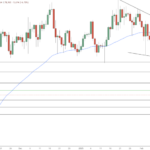Why Trump’s Tariffs Could Benefit Bitcoin in the Long Run
As the Trump Administration prepares to implement its latest tariff policies on what has been dubbed “Liberation Day” this Wednesday, economic uncertainty looms. Many analysts are concerned about the potential impact on both the broader economy and cryptocurrency markets. However, some experts argue that these tariffs could ultimately strengthen Bitcoin’s position as a global asset.
Key Takeaways:
- Bitcoin prices have dropped significantly under the Trump Administration, contrary to initial expectations.
- Economic instability and rising tariffs have led investors to shift toward traditional safe-haven assets like gold.
- Analysts suggest that tariffs may weaken the dominance of the U.S. dollar, creating an opportunity for Bitcoin to thrive in the long term.
Bitcoin’s Unexpected Decline
When Donald Trump returned to office, many crypto investors expected policies such as regulatory reform and the potential introduction of a Bitcoin Strategic Reserve to drive prices higher. Instead, Bitcoin has experienced a substantial decline, falling from over $100,000 at the start of the year to a low in the mid-$80,000s throughout March.
This downturn has been influenced by Bitcoin’s increasing correlation with traditional financial markets. Stocks and bonds have suffered under macroeconomic uncertainty, and crypto assets—viewed as riskier investments—have followed suit. Wall Street’s growing fears of a global recession due to trade tensions have made investors wary of speculative assets.
Marc Ostwald, Chief Economist & Global Strategist at ADM Investor Services International, explains that market risk appetite has been diminishing, pushing investors toward gold rather than crypto.
“This trend is largely driven by central bank foreign exchange reserve managers who are looking to reduce their exposure to the U.S. dollar,” Ostwald said. “For now, gold remains the preferred safe-haven asset.”
Could Bitcoin Become the New Gold?
While gold has surged 18% year-to-date amid economic uncertainty, some analysts believe Bitcoin could soon be viewed as an alternative store of value.
Omid Malekan, adjunct professor at Columbia Business School and author of The Story of the Blockchain: A Beginner’s Guide to the Technology That Nobody Understands, notes that the future remains uncertain.
“Some argue that crypto is a risk-on tech asset and will sell off in response to tariffs,” Malekan said. “However, Bitcoin has also been increasingly likened to ‘digital gold,’ and with gold prices soaring on tariff news, Bitcoin could follow a similar trajectory.”
If economic conditions continue to worsen, investors seeking refuge from traditional markets may start turning to Bitcoin, just as they have with gold.
Are the Worst Effects of Tariffs Already Priced In?
There’s also speculation that the impact of tariffs on crypto markets may already be factored in, meaning the worst could be over.
Zach Pandl, Head of Research at Grayscale, a leading crypto asset management firm, suggests that the upcoming tariff announcements may not be as damaging as feared.
“If Wednesday’s announcement is tough but phased, and primarily targets the 15 countries expected—including China, Canada, and Mexico—financial markets may actually rally,” Pandl told CoinDesk.
This could shift the focus back to Bitcoin’s fundamentals, which remain strong. Pandl points to Circle’s IPO as an indication that institutional confidence in digital assets remains high despite recent market volatility.
A Weakening Dollar Could Bolster Bitcoin’s Role
Pandl, a former macro-economist at Goldman Sachs, also argues that tariffs could reduce the U.S. dollar’s dominance, creating an opening for alternative assets like Bitcoin.
“I believe tariffs will weaken the dollar’s global role and create room for competing assets, including Bitcoin,” Pandl said. “Short-term prices have dropped, but the first few months of the Trump Administration have only strengthened my long-term conviction in Bitcoin as a global monetary asset.”
Despite the current market pessimism, Pandl remains optimistic about Bitcoin’s future.
“I still believe Bitcoin will reach new all-time highs this year,” he said. “I wouldn’t have left my Wall Street job if I didn’t believe Bitcoin would emerge as the ultimate winner in the long run.”
Final Thoughts
While Trump’s tariffs have injected uncertainty into global markets, their long-term impact on Bitcoin remains an open question. If the dollar weakens and economic instability persists, Bitcoin may find itself increasingly viewed as a safe-haven asset—potentially setting the stage for a major price surge in the years ahead.


